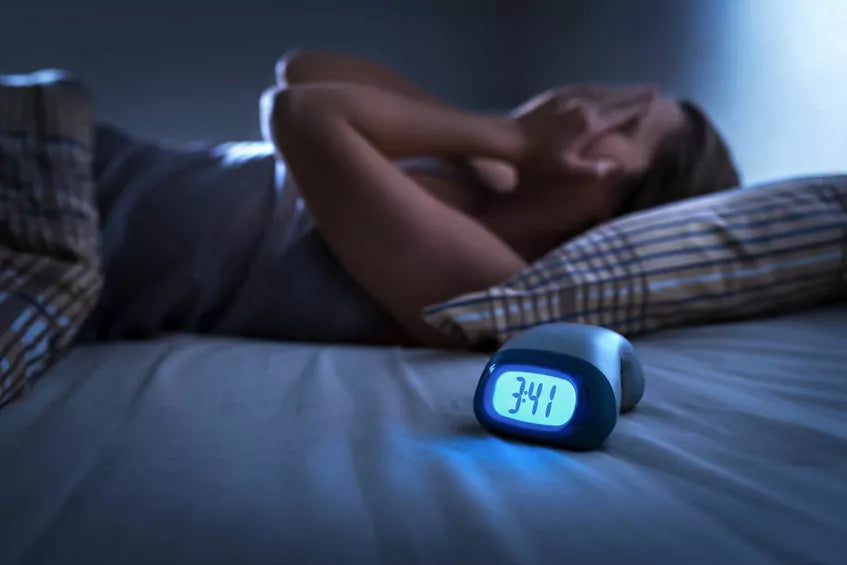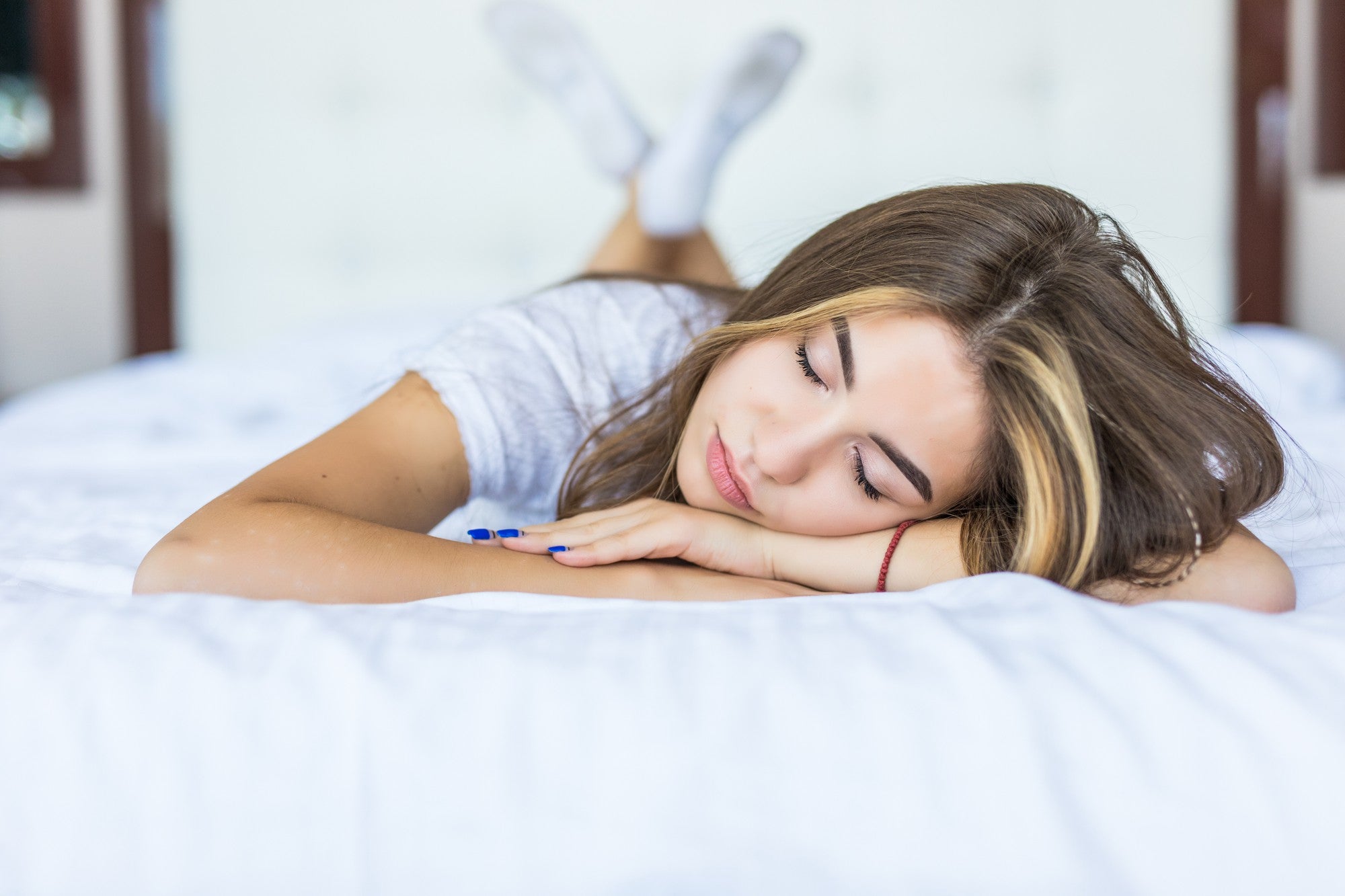Many of us have found ourselves staring at the ceiling at 3 a.m., plagued by the frustrating question: "Why can't I sleep?" Insomnia, or the inability to fall asleep or stay asleep, can be a debilitating condition, affecting our energy, mood, health, and daily functioning. In this article, we will explore the symptoms of insomnia, the potential reasons why you can't sleep at night, and discuss the cure for insomnia through various effective strategies, supported by scientific findings.

Symptoms of Insomnia
Insomnia manifests in several ways, and recognizing the symptoms is the first step toward finding the cure for insomnia. Common symptoms include:
- Difficulty falling asleep despite being tired.
- Waking up frequently during the night.
- Trouble getting back to sleep when awakened.
- Waking up too early in the morning.
- Relying on sleep medications or alcohol to fall asleep.
- Experiencing non-restorative sleep; even after a full night's sleep, you don't feel refreshed.
According to the American Academy of Sleep Medicine, these symptoms can lead to significant daytime impairments, affecting up to 30% of adults at some point in their life.
Possible Reasons for Insomnia
Understanding the underlying causes of your sleep disturbances can be key to tailoring the right treatment approach. Some common factors include:
- Stress and anxiety: Research has consistently shown that stress and anxiety can activate the body's arousal system, making it difficult to sleep. A study published in the journal Sleep indicated that stress-related hyperarousal can disrupt the sleep cycle.
- Poor sleep habits: An irregular sleep schedule, stimulating activities before bed, and an uncomfortable sleep environment can interfere with your circadian rhythm. The Sleep Research Society suggests that maintaining a consistent sleep-wake schedule can help stabilize this rhythm.
- Medical conditions: Conditions like depression, anxiety, chronic pain, and hormonal imbalances are known to significantly affect sleep patterns, as documented in several studies.
- Diet and lifestyle: The impact of caffeine, nicotine, and alcohol on sleep has been widely documented. For instance, caffeine can delay the timing of your body clock and reduce sleep efficiency, as shown in a study by the Journal of Clinical Sleep Medicine.
- Environmental factors: Noise, light, and temperature in your bedroom can prevent you from falling asleep or staying asleep. A study in the Environmental Health Perspectives journal found that optimal sleep is achieved in a quiet, dark, and cool environment.

How to Address Insomnia
Here are some detailed strategies to help you address insomnia:
1. Establish a regular sleep routine:
- Go to bed and wake up at the same time every day, even on weekends. This helps to regulate your body's internal clock and improve the quality of your sleep.
- Light the aromatherapy or turn on the galaxy projector, create a warm or mysterious sleeping environment for yourself
- Make your bedtime routine calming and restful, avoiding any activities that cause excitement, stress, or anxiety.
2. Create a restful environment:
- Keep your bedroom quiet, dark, and cool. Consider using blackout curtains, eye masks, earplugs, fans, or other white noise machines.
- Invest in a good quality mattress and pillows to support a comfortable sleep posture.
3. Mind your diet and exercise:
- Avoid large meals, caffeine, and alcohol before bedtime. A light snack may be helpful if you find yourself hungry at night.
- Incorporate regular physical activity into your daily routine, but avoid vigorous exercise close to bedtime.
4. Manage stress and anxiety:
- Engage in relaxation techniques such as meditation, deep breathing exercises, or yoga. Regular practice can significantly reduce stress levels and improve your sleep.
- Consider cognitive-behavioral therapy for insomnia (CBT-I), which has been shown to effectively treat insomnia.
5. Limit screen time:
- Avoid exposure to bright screens at least one hour before bedtime. The blue light emitted by phones, tablets, and computers can suppress melatonin production and interfere with your sleep cycle.
- If necessary, use apps that filter the blue light or wear glasses that block the blue light.
6. Consult with a healthcare provider:
- If lifestyle adjustments do not improve your sleep, seek professional help. A healthcare provider can assess your condition and offer guidance on medical treatments or behavioral therapy.
- Discuss the potential use of sleep aids or medications with a professional to ensure they are used safely and effectively.

Conclusion
"Why can't I sleep at night" can be a complex issue with multiple underlying causes, but understanding these with the help of scientific evidence provides a significant step toward finding relief. By identifying the symptoms, addressing the potential reasons, and applying appropriate sleep strategies, you can enhance your chances of a good night's sleep. Remember, if self-help strategies don't resolve your insomnia, it may be necessary to consult a healthcare expert for further evaluation and treatment.
Sleep is essential for health and well-being, so find the cure for insomnia right now, then take the right steps to ensure you're getting the rest you need!














Leave a comment
All comments are moderated before being published.
This site is protected by hCaptcha and the hCaptcha Privacy Policy and Terms of Service apply.